Nintendo needs to reach beyond its catalogue to save Wii U
It's no longer fashionable to believe in the Wii U. Brenna takes a look at Super Mario 3D World's disappointing sales and admits the plumber isn't enough to keep Nintendo afloat under Sony and Microsoft's barrages.
"What was Nintendo thinking, launching the same week as the PS4?” the Twitterati chattered. Probably, like those early supporters, the Big N was thinking, “We’re Nintendo, and we do what Nintendo does”.
Flashback to E3 2011; the Wii U has just been properly detailed for the first time. It's got a ridiculous name and nobody in specialist press has any idea what Nintendo is barking on about with its weird new controller. Nintendo stock plummets. Mainstream press and consumers have no clue what the difference is between the new box and the old one, or even if there is a new box.
Nevertheless, anybody who dared to predict a poor future for Nintendo at that time was laughed out of the room. "It's Nintendo," you would be told, as your colleagues shared knowing winks and nods at your feeble naivety. "It's got Mario and Zelda, innit. Just look at the Wii. 100 million sales worldwide and it doesn't do HD!"
Now here we are in December 2013, just weeks away from Chrimbo, and the first console of the new generation is on such shaky ground that the detractors piling on resemble some sort of insane orgy, all flailing limbs and cruel orgasmic faces. Analysts have lowered their lifetime sales predictions. One developer said "nobody gives a s**t" about the Wii U. The former boss of THQ has said Nintendo has become irrelevant, and he ought to know a thing or two about lack of relevancy, ha ha. Even Michael Pachter, one of the platform holder's historical supporters, has criticised Nintendo for refusing to admit consumers don't give a gibbon's left testicle about the console.
"It's got Mario" is no longer enough. When the UK retail charts came out this week, Twitter was a-flutter with the news that Super Mario 3D World had debuted in 14th place - behind Sony's Knack, a rival platformer which has been quite poorly received, in 13th. "What was Nintendo thinking, launching the same week as the PS4?" the Twitterati chattered.
Probably, like those early supporters, the Big N was thinking "This is the best new Mario game we've done in years," and certainly much better than New Super Mario Bros. U, for example. Probably it was thinking, "We're Nintendo, and we do what Nintendo does".
The reportedly mediocre Knack beating the reportedly wonderful Mario (even Pat loves Super Mario 3D World) isn't the news story here, and to be fair to the poor old plumber, if he'd launched in any other month the story probably would have been "Knack doesn't do very well" or "Mario can't quite beat juggernauts GTA 5 and Call of Duty: Ghosts", because the PS4 and Xbox One have unfairly skewed the charts. This story isn't really about Knack; it's one of a very small number of exclusive in-store releases at the launch of a new console, and the fact that it's out-performed Mario in spite of mixed to poor reviews from the North American launch two weeks before is an indication of how well even quite rubbish products do at hardware launches.
The real story is: here's a Mario game that hasn't come anywhere near the top of the charts, and nobody is at all surprised. As much as I'd like to blame the hair-raising creepiness of the cat-suit ads out of Japan (because seriously guys, errrgghhh), there's a general feeling in the air that this time, Nintendo has not only dropped the ball but kicked it backwards for an own goal. Repeatedly.
"We're Nintendo, and we do what Nintendo does" is very unhealthy thinking right now, and Nintendo's stubborn refusal to take drastic action to turn the Wii U around (such as scheduling a Mario launch around competitors, something it's never had to do in the past) is puzzling, since it's already demonstrated it can chase down a lost ball and turn the game around.
The 3DS had a dreadful launch and we were deeply pessimistic about it, but we were also genuinely delighted to be wrong when the little console that could bounced back on a price cut and went on to become best-selling hardware in the conservative pre-transition market. Learning from this lesson, we maintained cautious optimism over the Wii U, with its second screen tech rooted in a deep understanding of how the living room is used and dating back to experimentation begun with the original DS.
But the damn thing still isn't selling, is it? As of September, Nintendo confessed that just 3.91 million units had shipped worldwide. Shipped, not sold.
Why hasn't Nintendo dropped the price on the Wii U to bargain levels? Likely because it can't afford to do that. It accepted a hardware loss on the 3DS for the first time in its history and that worked, but it also cut deeply into the company's bottom line for a while. Investors have shown increasing unhappiness over the past year as the Wii U failed to set markets afire, and with the genral depression caused by the lingering console cycle, sales just haven't been strong enough to generate sufficient spending money to take another hit.
What can Nintendo do to restore investor faith and shore up its profit lines? Until this week, I probably would have said more, better games were all the family-friendly console needs, and from the share price jump, I don't think I'm alone in that opinion. But if a new, high quality Mario game can sink, it may be time to admit that Miyamoto's golden properties aren't immune to franchise fatigue after all.
Is it time for Nintendo to cut its ties with the HD-focused west and focus on an audience that appreciates its wizardry, adding yet more fuel to the Japanese-development-is-becoming-irrelevant gossip bonfire? That's a dream from another day. Even in Japan, Super Mario 3D World failed to top the charts, selling less than Lightning Returns: Final Fantasy 13 which, may I remind you, sold less than a third of the original Final Fantasy 13. Nintendo needs western markets.
We're not ready to drop the curtain on Nintendo and Mario. Nintendo knows it bollocksed the Wii U's marketing - although it's still stubbornly ignoring the price issue - and that it's got to win back third parties rather than rely on its own properties like it did last generation. It can still speak to its core fans; The Legend of Zelda: Wind Waker gave the console a much needed boost.
Nintendo hasn't completely lost the plot. But for every SNES and Wii there's got to be a GameCube; and in every race, there are winners and losers. Stacked up against the PS4 and Xbox One, Nintendo's looking to ring in this generation less as an also-ran and more as an abject failure.



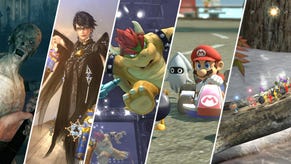
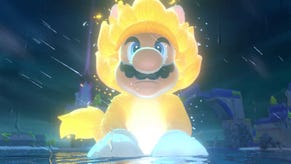
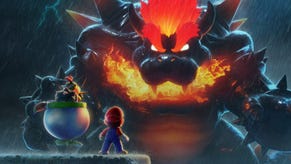
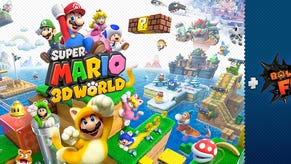
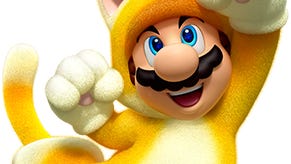
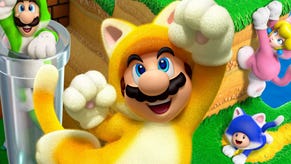
.jpg?width=291&height=164&fit=crop&quality=80&format=jpg&auto=webp)